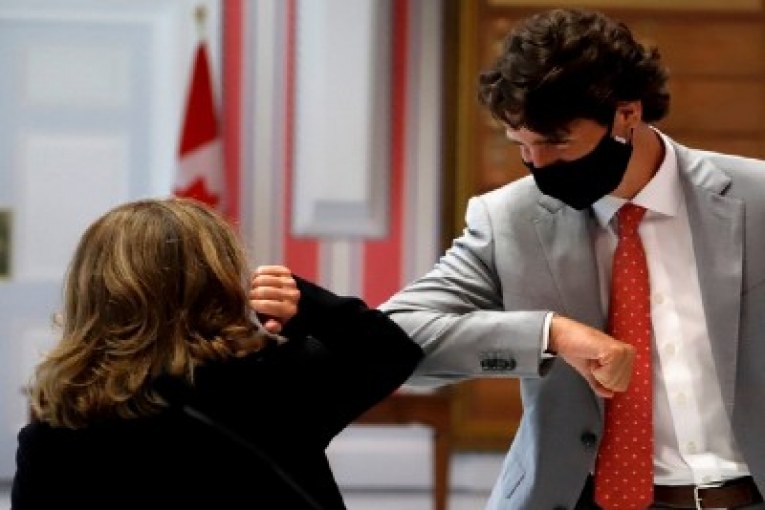
, Bloomberg News
(Bloomberg) — Justin Trudeau’s Covid-19 support programs gave Canada one of the world’s largest budget deficits, and now the prime minister is ready to test public appetite for more red ink.
His Liberal government will likely roll out aspects of its longer-term agenda in a budget update by Finance Minister Chrystia Freeland next month, according to a person familiar with the plans.
The document will mainly focus on updating projections and explaining how the run-up in deficits will be financed, the person said, speaking on condition they not be identified. But the government is also considering funding for some of the initiatives outlined when parliament resumed last month. Big-ticket priorities in the mix include daycare, pharmacare, the environment, housing and transit.
Trudeau has been hinting he wants to keep the fiscal taps open, and the government’s role in the post-pandemic recovery will be the central political debate through the new year. The main opposition Conservatives are already threatening to drag the Bank of Canada into the melee.
“The prime minister laid out that they’re going to do whatever it takes and I think Canadians would generally agree with that approach,” said Elliot Hughes, a former adviser to Freeland’s predecessor, Bill Morneau. “Right now Canadians are supportive, but it’ll be interesting to see where we’re at in five or six months.”
Public opinion polling reflects the risks ahead for Trudeau — who lacks a parliamentary majority and requires the support of at least one other party to stay in power.
According to a survey by Nanos Research for Bloomberg News earlier this month, almost 60% of respondents say they are at least “somewhat comfortable” with Trudeau’s pledge to continue “supporting people and businesses through this crisis as long as it lasts, whatever it takes.” About 40% were either uncomfortable or somewhat uncomfortable.
But stronger divisions emerge over the direction of fiscal policy post-Covid. A separate Nanos poll published by the Globe and Mail newspaper this week found just over one third of Canadians back borrowing to invest in “social and economic priorities” beyond pandemic needs. Nearly 60% said the government should show restraint or only borrow for pandemic purposes.
The opposition is also trying to straddle the difference between the two types of spending. In contrast to the U.S. where lawmakers have been unable to agree on new stimulus measures, the Conservatives supported legislation last month to beef up programs for unemployed Canadians. But they voted against Trudeau’s so-called Throne Speech, effectively a rebuke of his expansionist long-term vision.
“We believe that permanent new government programs would be a disaster for the country,” Pierre Poilievre, chief Conservative spokesman on finance issues, said in an interview. “Once the pandemic ends, we will need to gradually phase out the deficit — not permanently lock it into place.”
Canada’s government has already budgeted just under C$400 billion ($303 billion) in response to the pandemic. Adding provincial shortfalls, the International Monetary Fund projects deficits this year will reach around 20% of gross domestic product, the highest in the Group of 20. The parliamentary spending watchdog, meanwhile, predicts a gap of nearly C$74 billion next year without taking into account any new measures.
In an illustration of how heated the debate is becoming, Poilievre said the independent central bank can expect a higher level of scrutiny if it uses its bond-buying power to help Trudeau’s government finance deficits for non-emergency reasons.
The issue even prompted a shake-up of the Liberal front bench this summer. Morneau was forced out in August when friction between his office and Trudeau’s burst into public view.
Corporate leaders are also raising concern, particularly after Canada was stripped of its AAA status by Fitch Ratings Inc. in June.
“We’ve frankly overstimulated the economy for what was necessary,” Goldy Hyder, president of the Business Council of Canada, said by phone. “Take notice of the fact that credit rating agencies are watching.”
Share This:
You can read more of the news on source



